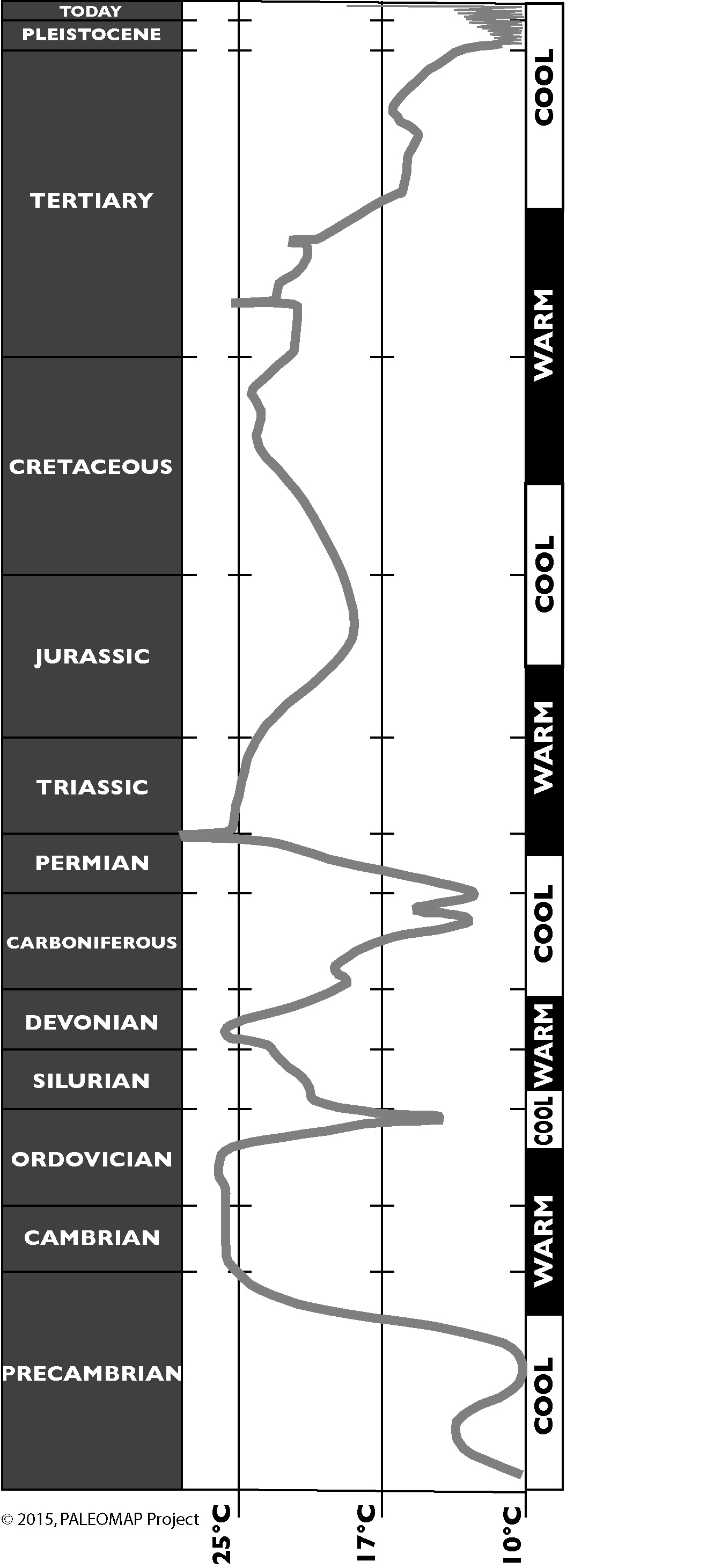
Posted on 04/06/2003 11:04:51 AM PDT by Francohio
Middle Ages were warmer than today, say scientists
By Robert Matthews, Science Correspondent (Filed: 06/04/2003)
Claims that man-made pollution is causing "unprecedented" global warming have been seriously undermined by new research which shows that the Earth was warmer during the Middle Ages.
From the outset of the global warming debate in the late 1980s, environmentalists have said that temperatures are rising higher and faster than ever before, leading some scientists to conclude that greenhouse gases from cars and power stations are causing these "record-breaking" global temperatures.
Last year, scientists working for the UK Climate Impacts Programme said that global temperatures were "the hottest since records began" and added: "We are pretty sure that climate change due to human activity is here and it's accelerating."
This announcement followed research published in 1998, when scientists at the Climatic Research Unit at the University of East Anglia declared that the 1990s had been hotter than any other period for 1,000 years.
Such claims have now been sharply contradicted by the most comprehensive study yet of global temperature over the past 1,000 years. A review of more than 240 scientific studies has shown that today's temperatures are neither the warmest over the past millennium, nor are they producing the most extreme weather - in stark contrast to the claims of the environmentalists.
The review, carried out by a team from Harvard University, examined the findings of studies of so-called "temperature proxies" such as tree rings, ice cores and historical accounts which allow scientists to estimate temperatures prevailing at sites around the world.
The findings prove that the world experienced a Medieval Warm Period between the ninth and 14th centuries with global temperatures significantly higher even than today.
They also confirm claims that a Little Ice Age set in around 1300, during which the world cooled dramatically. Since 1900, the world has begun to warm up again - but has still to reach the balmy temperatures of the Middle Ages.
The timing of the end of the Little Ice Age is especially significant, as it implies that the records used by climate scientists date from a time when the Earth was relatively cold, thereby exaggerating the significance of today's temperature rise.
According to the researchers, the evidence confirms suspicions that today's "unprecedented" temperatures are simply the result of examining temperature change over too short a period of time.
The study, about to be published in the journal Energy and Environment, has been welcomed by sceptics of global warming, who say it puts the claims of environmentalists in proper context. Until now, suggestions that the Middle Ages were as warm as the 21st century had been largely anecdotal and were often challenged by believers in man-made global warming.
Dr Philip Stott, the professor emeritus of bio-geography at the University of London, told The Telegraph: "What has been forgotten in all the discussion about global warming is a proper sense of history."
According to Prof Stott, the evidence also undermines doom-laden predictions about the effect of higher global temperatures. "During the Medieval Warm Period, the world was warmer even than today, and history shows that it was a wonderful period of plenty for everyone."
In contrast, said Prof Stott, severe famines and economic collapse followed the onset of the Little Ice Age around 1300. He said: "When the temperature started to drop, harvests failed and England's vine industry died. It makes one wonder why there is so much fear of warmth."
The United Nation's Intergovernmental Panel on Climate Change (IPCC), the official voice of global warming research, has conceded the possibility that today's "record-breaking" temperatures may be at least partly caused by the Earth recovering from a relatively cold period in recent history. While the evidence for entirely natural changes in the Earth's temperature continues to grow, its causes still remain mysterious.
Dr Simon Brown, the climate extremes research manager at the Meteorological Office at Bracknell, said that the present consensus among scientists on the IPCC was that the Medieval Warm Period could not be used to judge the significance of existing warming.
Dr Brown said: "The conclusion that 20th century warming is not unusual relies on the assertion that the Medieval Warm Period was a global phenomenon. This is not the conclusion of IPCC."
He added that there were also doubts about the reliability of temperature proxies such as tree rings: "They are not able to capture the recent warming of the last 50 years," he said.
Other Telegraph Climate Stories:4 April 2003: English strawberries on shelves in record time 20 February 2003: Britain faces drier summers and flooding 4 February 2003: Climate change plagues hay fever sufferers 30 November 2002: Growth in flights will wreck climate, says commission

Thanks dave, and I really like your tagline, very inspiring. I'm glad you responded to my old post today.
|
|
|||
Gods |
Just updating the GGG info, not sending a general distribution. |
||
|
· Mirabilis · Texas AM Anthropology News · Yahoo Anthro & Archaeo · · History or Science & Nature Podcasts · Excerpt, or Link only? · cgk's list of ping lists · |
|||
Disclaimer: Opinions posted on Free Republic are those of the individual posters and do not necessarily represent the opinion of Free Republic or its management. All materials posted herein are protected by copyright law and the exemption for fair use of copyrighted works.